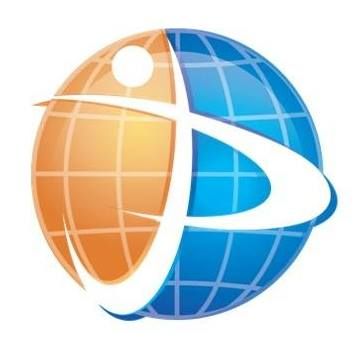预约演示
更新于:2025-05-07

Ozmosis Research, Inc.
更新于:2025-05-07
概览
标签
血液及淋巴系统疾病
肿瘤
T细胞疗法
关联
2
项与 Ozmosis Research, Inc. 相关的药物靶点 |
作用机制 CAIX抑制剂 |
在研适应症 |
最高研发阶段临床1/2期 |
首次获批国家/地区- |
首次获批日期- |
靶点- |
作用机制 细胞替代物 |
在研适应症 |
非在研适应症- |
最高研发阶段临床1期 |
首次获批国家/地区- |
首次获批日期- |
22
项与 Ozmosis Research, Inc. 相关的临床试验NCT06613217
A Phase 1 Study of Oral PCLX-001 in Relapsed/Refractory (R/R) Acute Myeloid Leukemia (AML)
This is a dose-finding study of oral zelenirstat (PCLX-001) in patients with R/R AML. There are two parts to the study: Dose Escalation and Dose Expansion.
开始日期2025-03-03 |
申办/合作机构 |
NCT06693336
Phase IIa Trial Evaluating the Safety and Therapeutic Effect of SMS001 as an Adjuvant Therapy to Control Tumor Recurrence in Stage Ib-IIIa (N2) Non-Small Cell Lung Cancer (NSCLC) Patients
This study evaluates the use of SMS001 in patients with lung cancer. SMS001 is a new form of drug Paclitaxel. Doctors want to decide an appropriate safe dose for SMS001 administration, and to see how well it works in treating lung cancer patients.
开始日期2024-11-18 |
申办/合作机构 ToLymph Inc. [+3] |
NCT06650709
A Phase 2, Proof of Concept Trial Investigating the Safety and Efficacy of the Neoadjuvant Triplet Olaparib, Durvalumab and Bevacizumab in Advanced FIGO Stage IV High Grade Serous Ovarian Cancer
The goal of this phase 2 clinical trial is to learn if the three treatments olaparib, durvalumab and bevacizumab can treat participants with a diagnosis of stage 4 high grade serous ovarian cancer that is too advanced to undergo upfront surgery.
The main questions it aims to answer are:
Is the treatment able to shrink the cancer sufficiently for participants to undergo surgery? Is the combination of treatments safe in this neoadjuvant (before surgery) setting? This is a single arm study with no comparator arm.
Participants will receive the treatment up to 3 cycles with each drug given as follows in a 28-day cycle:
Olaparib orally on a twice daily continuous dosing schedule Durvalumab given intravenously on day 1 Bevacizumab given intravenously on day 1 and 15 (Day 15 omitted in C3)
Participants will be assessed throughout the study for safety and efficacy endpoints
The main questions it aims to answer are:
Is the treatment able to shrink the cancer sufficiently for participants to undergo surgery? Is the combination of treatments safe in this neoadjuvant (before surgery) setting? This is a single arm study with no comparator arm.
Participants will receive the treatment up to 3 cycles with each drug given as follows in a 28-day cycle:
Olaparib orally on a twice daily continuous dosing schedule Durvalumab given intravenously on day 1 Bevacizumab given intravenously on day 1 and 15 (Day 15 omitted in C3)
Participants will be assessed throughout the study for safety and efficacy endpoints
开始日期2024-11-01 |
申办/合作机构 |
100 项与 Ozmosis Research, Inc. 相关的临床结果
登录后查看更多信息
0 项与 Ozmosis Research, Inc. 相关的专利(医药)
登录后查看更多信息
21
项与 Ozmosis Research, Inc. 相关的文献(医药)2020-10-01·Clinical Trials3区 · 医学
Anti-Thrombotic Therapy to Ameliorate Complications of COVID-19 (ATTACC): Study design and methodology for an international, adaptive Bayesian randomized controlled trial
3区 · 医学
Article
作者: Husain, Mansoor ; Goligher, Ewan C ; Farkouh, Michael E ; Marshall, John ; Fergusson, Dean A ; Dzavik, Vlad ; Carrier, Marc ; Kirwan, Bridget-Anne ; Zarychanski, Ryan ; Rosenson, Robert S ; Slutsky, Arthur S ; Houston, Brett L ; Nicolau, Jose C ; Bond, Lindsay ; Gross, Peter L ; Kahn, Susan R ; Berry, Scott M ; Kumar, Anand ; Fowler, Robert A ; Escobedo, Jorge ; Bradbury, Charlotte ; Turgeon, Alexis F ; McDonald, Emily G ; Galanaud, Jean-Phillippe ; Lawler, Patrick R ; de Brouwer, Sophie ; Murthy, Srinivas
2020-05-20·Journal of Clinical Oncology
A phase Ib study of oral Chk1 inhibitor LY2880070 as monotherapy in patients with advanced or metastatic cancer.
作者: Vincett, Darcy ; Miller, Wilson H. ; Spratlin, Jennifer L. ; Batist, Gerald ; Zaknoen, Sara L. ; Stille, John R. ; Owen, Joel ; Bouganim, Nathaniel ; Lheureux, Stephanie ; Fortier, Caroline ; Buhlaiga, Najwa J ; Chu, Quincy S. ; Oza, Amit M. ; Smith, Patricia S ; Jonker, Derek J. ; Alcindor, Thierry
2020-05-20·Journal of Clinical Oncology
A phase II multicenter study of stereotactic radiotherapy (SRT) for oligoprogression in metastatic renal cell cancer (mRCC) patients receiving tyrosine kinase inhibitor (TKI) therapy.
作者: Heng, Daniel Yick Chin ; Keshavarzi, Sareh ; Chu, William ; Patenaude, Francois ; Winquist, Eric ; Czaykowski, Piotr ; Ahmad, Belal ; Dubey, Arbind ; Bjarnason, Georg A. ; Patel, Samir ; Cheung, Patrick ; Swaminath, Anand ; Sahgal, Arjun ; North, Scott A. ; Niazi, Tamim ; Soliman, Hany ; White, Justin ; Wong, Rebecca ; Lim, Gerald ; Morgan, Scott Carlyle
100 项与 Ozmosis Research, Inc. 相关的药物交易
登录后查看更多信息
100 项与 Ozmosis Research, Inc. 相关的转化医学
登录后查看更多信息
组织架构
使用我们的机构树数据加速您的研究。
登录
或

管线布局
2025年08月04日管线快照
管线布局中药物为当前组织机构及其子机构作为药物机构进行统计,早期临床1期并入临床1期,临床1/2期并入临床2期,临床2/3期并入临床3期
临床1期
1
1
其他
登录后查看更多信息
当前项目
| 药物(靶点) | 适应症 | 全球最高研发状态 |
|---|---|---|
Double Negative T Cells(Ozmosis Research) | 急性髓性白血病 更多 | 临床1期 |
SLC-0111 ( CAIX ) | 晚期恶性实体瘤 更多 | 无进展 |
登录后查看更多信息
药物交易
使用我们的药物交易数据加速您的研究。
登录
或

转化医学
使用我们的转化医学数据加速您的研究。
登录
或

营收
使用 Synapse 探索超过 36 万个组织的财务状况。
登录
或

科研基金(NIH)
访问超过 200 万项资助和基金信息,以提升您的研究之旅。
登录
或

投资
深入了解从初创企业到成熟企业的最新公司投资动态。
登录
或

融资
发掘融资趋势以验证和推进您的投资机会。
登录
或

Eureka LS:
全新生物医药AI Agent 覆盖科研全链路,让突破性发现快人一步
立即开始免费试用!
智慧芽新药情报库是智慧芽专为生命科学人士构建的基于AI的创新药情报平台,助您全方位提升您的研发与决策效率。
立即开始数据试用!
智慧芽新药库数据也通过智慧芽数据服务平台,以API或者数据包形式对外开放,助您更加充分利用智慧芽新药情报信息。
生物序列数据库
生物药研发创新
免费使用
化学结构数据库
小分子化药研发创新
免费使用

